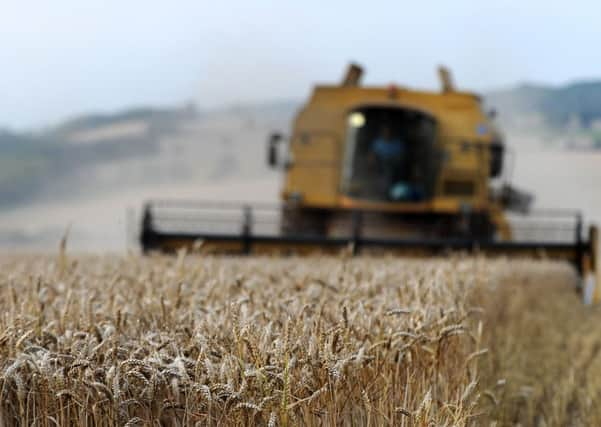Ross Murray: Food for thought as Brexit battles loom


The first critical point is that the UK doesn’t need one trade policy. It needs hundreds. That is because each part of the economy is different. As our leaders seek radical changes to our trading position in the world, every sector of the economy needs to consider where its best future lies and plan accordingly. It is the well organised industries with a clear vision that will be effective in influencing government priorities at this time of change.
Our mission must be to bring together the food industry to speak with one voice and establish a shared vision for our future trade. I don’t under-estimate the complexity of this challenge, but I am optimistic that this can be achieved. It is imperative that we accomplish it.
Advertisement
Hide AdAdvertisement
Hide AdWe must start by acknowledging that how we farm, process and market our food has been fundamentally shaped by decades of serving an overwhelmingly domestic and European market. Our agriculture and food sector operates behind high tariff walls within the EU. The EU is one of the world’s major food trading blocs. The US, which has just elected a highly protectionist president with a mandate to increase its tariff barriers, is another. The way in which we reposition ourselves within, or alongside, the EU has to be carefully considered and if we seek to withdraw, it should be staggered to allow businesses the time to adapt.
We must also be alert to where the major threat lies. There has been plenty of talk about the merits of so called ‘hard Brexit.’ The most ardent advocates of this approach say that the UK should remove itself from the EU, without a preferential trade deal agreed – at the same time removing all tariff barriers for exporters from anywhere in the world to sell their goods into the UK market. Do this, they argue, and the UK will be a beacon for other countries to follow. As a sector we have to be clear and robust in arguing that this is not free trade but a ‘free-for-all’. This would have dramatic and immediate consequences for the food sector and our countryside.
So if not hard Brexit, then what? There is much speculation about finding a way for the UK to remain a member of the single market. This is a dead end. There is no such thing as single market ‘membership’ outside of being a full EU member.
There is a strong lobby calling for the UK to seek to remain a part of the EU customs union. I do not believe this is realistic because membership of the EU customs union will prevent the UK from seeking free trade deals with any other non-EU country post-Brexit. Put another way, this would require ministers saying ‘Brexit does not mean Brexit’.
Advertisement
Hide AdAdvertisement
Hide AdSo the desirable option for the UK Government to pursue is to negotiate a bilateral free trade agreement with the EU that secures tariff-free access and maintains the current high level of regulatory and customs convergence. It may be possible to secure a permanent deal that takes effect within the next two years. If not, both sides must consider carefully a transitional approach.
There is additional risk for us in the food sector, because a bilateral trade deal could apply to all goods and services, or it could be piecemeal by sector. The history of EU trade deals is not on our side, with food often excluded. Food trade negotiations are always complex and emotive, and will be all the more so as we withdraw from the expensive and inflexible Common Agricultural Policy. We must seek concrete reassurances at every stage, and from both sides, that securing a trade deal for the food sector is a priority.
So our collective job is to make the case, to win hearts and minds, and to show that our high standards of production, animal welfare, environmental stewardship, our iconic and valuable landscapes, rural communities and our cultural identity are all at risk if we don’t get this aspect of Brexit right. It is time for the widest possible industry group to work together. I am committed to doing that. Our collective future is at stake.
Ross Murray is president of the Country Land and Business Association.